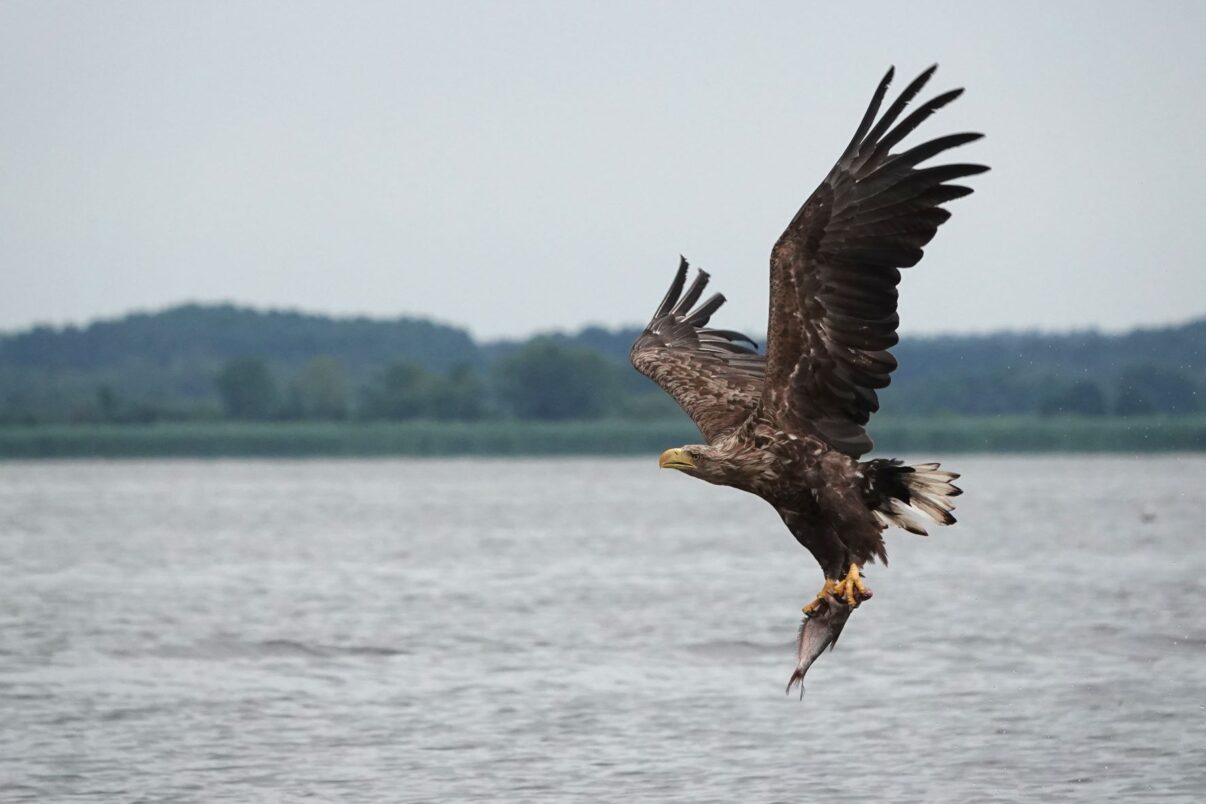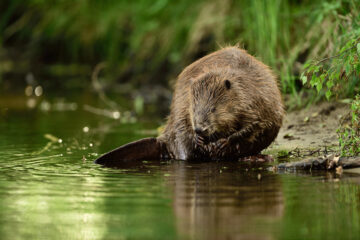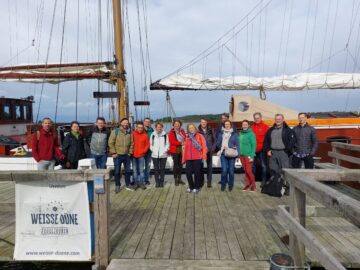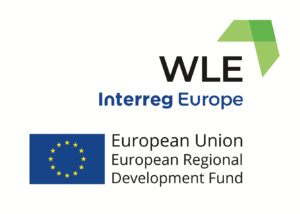Rewilding Europe is working to support the growth of nature-based economies by sharing knowledge and best practice from the field. A recent trip to the Oder Delta rewilding area saw partners in the Wildlife Economy initiative learn more about sustainable tourism.

Supporting wildlife economies

Demonstrating that the restoration of wildlife, landscapes and natural processes can generate new economic opportunities is one of Rewilding Europe’s core objectives. Across all of our operational areas we are building a “business case for the wild“, providing financial assistance and expertise to local, nature-based entrepreneurs. By creating new jobs and revenue streams – from bison rangers in Romania through to sustainable forestry in Portugal – rewilding is helping to revitalise areas of Europe that are frequently characterised by economic stagnation, depopulation and land abandonment.
The aim of the Interreg Europe-financed Wildlife Economy (WLE) initiative, which kicked off in 2019 and will run through to January 2023 (with Rewilding Europe in an advisory role), is to support four European regions in the growth of their own wildlife economies. Action plans will be developed based on the exchange of knowledge and best practice, with a focus on the development of more supportive local and national policies.
First-hand experience

As part of the WLE initiative, a range of study visits are allowing partners to witness European nature-based economies first-hand. At the end of September, the partners visited the Oder Delta rewilding area to see how the recovery of nature is underpinning economic development. Here the local rewilding team’s ongoing efforts to restore rivers and fish populations and support wildlife comeback are being complemented by work with local partners to develop a network of nature guides, wildlife watching tours and hides, accommodation and other nature-based enterprises.
Many Rewilding Europe employees attended the event, including Klara Enbom Burreau (Rewilding Sweden’s Nature Tourism Consultant), Janine Caalders and João Salgueiro (both Wildlife Economies Advisors for Rewilding Europe), and various members of the Rewilding Oder Delta team. In addition to the Oder Delta, WLE partners also visited Hainich and Crawinkel (Germany), Alava (northern Spain), the Danube Delta (Romania) and Estonia between September and November.
“I think what makes the Oder Delta special is that it is now home to so many wildlife species that are rare elsewhere – it is their presence which is really benefitting the area economically, because they are obviously a big attraction.”
Nature-driven growth

One of the highlights of the visit was a boat ride along the Peene River to witness the impact of rewilding up close.
“It was interesting to see how peatland restoration in the delta has really enabled wildlife comeback,” says Janine Caalders. “So, for example, we saw a lot of common cranes and white-tailed eagles on our ride. I think what makes the Oder Delta special is that it is now home to so many wildlife species that are rare elsewhere – it is their presence which is really benefitting the area economically, because they are obviously a big attraction.
“Back in the 1990s and early 2000s, a lot of money was invested in rewetting peatland along the Peene, removing 5000 hectares of land from agricultural production. People thought it would lead to a decrease in jobs, but the reverse was actually the case – 35 jobs in agriculture disappeared, but 70 new jobs in tourism and nature conservation were created. This one example really encapsulates the potential of rewilding to generate economic growth.”
Inspirational meetings

The study team also had a couple of thought-provoking meetings with leading figures in local nature-based tourism. The first of these was with Mr. Ulf Wigger, Director of the Usedom Nature Park, which is located on the island Usedom to the northwest of the Stettin Lagoon. Topics discussed included visitor management (the park is extremely popular in the summer months), and cooperation with tourism entrepreneurs.
As part of the WLE initiative, Rewilding Europe is compiling an overview of best practice cases where entrepreneurs have become involved with rewilding and made a good living out of it.
With this in mind, the team also met with Martin Schröter, one of the driving forces behind the creation of a nature and wildlife-related economy in the Oder Delta. A key stakeholder in the WLE initiative, Martin helped to establish the Oder Delta as a rewilding area in 2014, is head of the HOP (Transnationales Netzwerk Odermündung e.V.) cross-border sustainable tourism enterprise network, and manages various tourism entities in the area. He welcomed the group and underlined the importance of wild nature and rewilding to the economic development of the Oder Delta region, emphasising the link with presents – little sailing boats made from willow branches by a local entrepreneur.
 “Martin was a really intriguing guy to speak with,” says Janine Caalders. “Most entrepreneurs view conservation from a philanthropic perspective, yet Martin is a real believer that rewilding can generate profit too – that what’s good for nature can also be good for the bottom line. He is also very dynamic and proactive. You really need these kinds of people on the ground to get nature-based economies up and running.”
“Martin was a really intriguing guy to speak with,” says Janine Caalders. “Most entrepreneurs view conservation from a philanthropic perspective, yet Martin is a real believer that rewilding can generate profit too – that what’s good for nature can also be good for the bottom line. He is also very dynamic and proactive. You really need these kinds of people on the ground to get nature-based economies up and running.”
